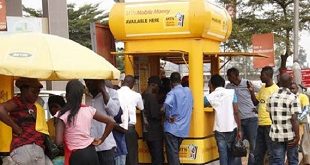Sources of funds
The costly nature of running campaigns leads some political parties and candidates to engage in unlawful activities. This may involve exploiting state funds to support daily activities during the electoral campaigns, such as relying on state vehicles to transport candidates, using state institutions’ office equipment or monopolising state-owned media to become their personal mouthpieces.
Other ways leaders may try to generate more funds to support their campaign endeavors include the use of public funds as they are generated from the manipulation of public procurement processes (i.e. by awarding the implementation of public projects to those willing to return back a portion of the money), from the misappropriation of funds provided for projects that are not actually implemented, or from financial investments that are not actually made in the interest of the public.
The impact of these funding malpractices can pose disastrous consequences on the management of public businesses. For example, when appointing individuals to decision-making positions, politicians will favour those most willing to play the “misappropriation game” and not necessarily those who are most competent. Obviously this bears subsequent effects on the quality of state-implemented projects. And last, but certainly not least, these malpractices tend to lead to the allocation of public funds to finance low-priority projects that may be completely irrelevant to the actual development needs of that country.
A second source of funding that politicians may turn to when financing their political activities is wealthy and influential domestic and foreign businessmen. In Ghana’s 1992, Cameroon’s 1997 and Benin’s 2011 presidential elections, candidates were reported to have been backed by (small) groups of businessmen who provided large donations to fund these electoral campaigns. These large donations to presidential hopefuls may come with “strings attached”, as exemplified in Benin after elections resulted in a select few benefitting from the privatization of one of the country’s key economic sectors, the cotton industry.
In other countries, it has been reported that large donors may also nominate state secretaries to control specific governmental portfolios (for example, ministries in charge of trade, agriculture, health, and other ministries where large public procurements take place).
Alternatively, the government may simply involve themselves directly in money laundering schemes with affluent businessmen.
And perhaps worse of all, a third possible source of funding is emanating from money laundering and drug trafficking. Using this type of “dirty money” to fund political activities undoubtedly contributes to the distortion of the electoral politics – leaving an uneven electoral playing field where money may be used to buy votes and criminal activities can ensue. Quite obviously this type of manipulation has disastrous effects on the governance of most countries. The latter may include a weakening of state institutions, corruption and cooptation of government officials, a perversion of the justice systems and even instability in some of the countries in question – Mali and Guinea Bissau serving as prime examples.
Use of funds
Aside from analysing the source of money funding political activities – particularly during election time – another key area to scrutinise is how this money is used. A typical way that funds can be exploited is in the manipulation of state institutions and intermediary bodies. For example, buying votes, through direct distribution of cash or other forms of remuneration is not uncommon during, and even post-election. It is not uncommon to hear of vote-buying practices of parliamentarians or civil society organisations (or even having the latter entirely created and run by politicians who work in cahoots with those in power).
The consequences of these illicit practices on the development and the consolidation of democracy are severe. Presidential candidates may not be elected on the basis of their political or economic vision for the country, but rather on how much money is spent before and during elections. It is the state institutions, and the other intermediary bodies, whose failure to ensure the proper use of public funds that weakens governance systems as a whole. Then everyone – except those select, moneyed few – suffer the effects.
 The Independent Uganda: You get the Truth we Pay the Price
The Independent Uganda: You get the Truth we Pay the Price


